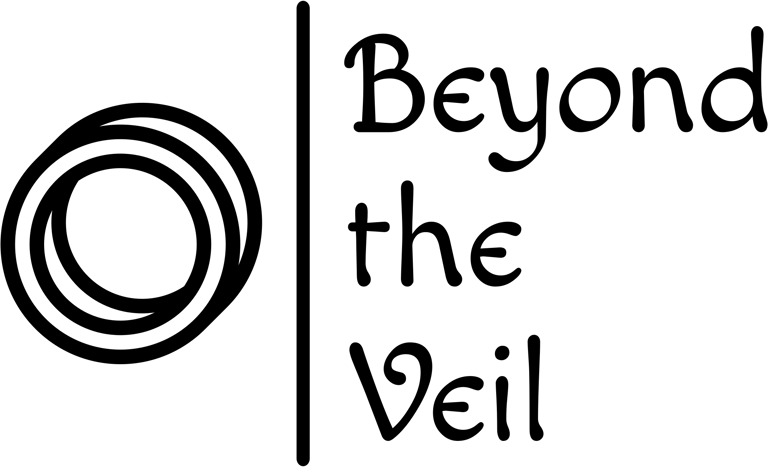Meaning Over Comfort: Why Purpose is Key to a Fulfilling Life
In a world that often prioritizes comfort and convenience, what if true fulfillment lies elsewhere? This post explores the idea that life’s greatest satisfaction comes not from avoiding hardship but from embracing responsibility and seeking meaning. Drawing on philosophical and psychological insights, we delve into the concept of meaning as both created and discovered, and how confronting chaos can lead to personal growth. Whether meaning is something we generate or uncover, the pursuit of it gives life purpose, resilience, and depth.
8/24/20246 min read


In a world that often prioritizes ease and convenience, it’s worth considering a different perspective: that true fulfillment in life doesn’t come from comfort alone but from the pursuit of meaning. Meaning provides a deeper sense of purpose, direction, and resilience, allowing us to navigate life’s challenges with intention. The idea that meaning outweighs comfort has been explored by various thinkers, philosophers, and psychologists throughout history. By diving deeper into this concept, we can understand how embracing responsibility, confronting chaos, and seeking purpose can lead to a more fulfilling life.
Comfort vs. Meaning
Life, by its very nature, includes difficulties and challenges. Whether it’s personal struggles, professional setbacks, or existential crises, hardship is a part of the human experience. While comfort can provide temporary relief from these struggles, it’s ultimately the pursuit of meaning that gives life depth and purpose.
Comfort, in its most basic form, is about avoiding pain and seeking ease. In today’s society, we’re often bombarded with messages encouraging us to prioritize convenience and immediate gratification. From technology that makes tasks easier to a culture that celebrates leisure, it’s easy to fall into the trap of seeking comfort above all else. However, as many thinkers have pointed out, a life focused solely on comfort can lead to stagnation and a lack of fulfillment.
Viktor Frankl, a Holocaust survivor and renowned psychologist, wrote extensively about the importance of finding meaning even in the most challenging circumstances. In his book Man’s Search for Meaning, Frankl argues that individuals who find meaning in their suffering can endure almost anything. He suggests that meaning is not just a luxury—it’s a psychological necessity for mental health and well-being. Without it, life can feel empty and directionless, even if it’s comfortable.
Meaning provides us with a sense of purpose and direction. It motivates us to take on challenges, endure hardship, and strive toward something greater than ourselves. When we focus on meaning, we find fulfillment not in avoiding discomfort but in facing life’s difficulties head-on and emerging stronger from them.
Is Meaning Created or Discovered?
The question of whether meaning is something we create for ourselves or something inherent in the world that we discover is one that has been debated by philosophers for centuries. Both perspectives offer valuable insights.
Meaning as Creation: Existentialist philosophers like Jean-Paul Sartre argue that meaning is not something we find in the world, but something we create through our actions and choices. According to this view, individuals are responsible for giving their lives meaning by setting goals, taking on challenges, and pursuing personal growth. Sartre famously said, "Existence precedes essence," meaning that we are born without predetermined purpose, and it’s up to us to create meaning through how we live our lives.
From this perspective, meaning is highly individualized. What gives one person a sense of purpose might be different from what motivates someone else. The emphasis is on taking responsibility for our lives and actively shaping our reality through intentional actions. Meaning is a product of engagement, growth, and effort.
Meaning as Discovery: On the other hand, some philosophers and spiritual traditions suggest that meaning is inherent in the world and can be discovered through introspection, relationships, and engagement with the world. This perspective is often linked to religious or spiritual beliefs, where life is seen as having an underlying purpose that transcends individual existence.
For example, many religious traditions teach that meaning is found in serving others, connecting with a higher power, or fulfilling a divinely ordained purpose. Carl Jung’s concept of the "collective unconscious" also touches on this idea—he believed that certain symbols and archetypes are shared across humanity, pointing to a deeper, universal meaning that can be uncovered through exploration of the self and the world.
In practice, meaning might be both created and discovered. While we shape our lives through our choices, we are also influenced by deeper truths that we uncover along the way. Life can offer moments of insight and clarity that reveal purpose, but it’s up to us to integrate those revelations into our daily actions. Whether meaning is created or discovered, the key is that it provides a sense of purpose that sustains us through life’s complexities.
Responsibility and Purpose
Taking on responsibility is one of the most effective ways to find meaning in life. Responsibility connects us to others, encourages us to contribute to something beyond ourselves, and helps us build a sense of purpose. When we take responsibility—whether for ourselves, our families, or our communities—we create opportunities for growth, resilience, and fulfillment.
Responsibility often requires us to confront discomfort, sacrifice personal ease, and engage in difficult tasks. Yet, it is through these challenges that we build character, develop skills, and ultimately find deeper satisfaction in life. Friedrich Nietzsche emphasized the importance of having a "why" in life—a purpose that motivates us to endure even the most difficult challenges. Responsibility often provides that "why," giving us a reason to keep moving forward, even when the path is tough.
By embracing responsibility, we step out of the narrow pursuit of comfort and engage with life more fully. Whether it’s through meaningful work, raising a family, or contributing to the greater good, responsibility helps us create a life that matters. It is through this engagement with the world that we find purpose and fulfillment.
Confronting Chaos and Building Order
Life is inherently chaotic and unpredictable. From unexpected events to personal struggles, we often find ourselves facing situations that challenge our sense of stability. However, it is in confronting this chaos that we have the opportunity to create order and meaning in our lives.
Rather than avoiding chaos, we can choose to confront it directly. By facing our fears, weaknesses, and uncertainties, we can develop resilience and strength. This process of creating order—whether in our personal lives, relationships, or work—often leads to personal growth and a deeper sense of purpose.
Carl Jung, a pioneering psychologist, explored the concept of individuation—the process of integrating different parts of ourselves to create a more cohesive and balanced life. For Jung, confronting the chaos within ourselves and in the world around us was essential for personal development. By embracing the unknown and striving to create order, we become more complete individuals.
This idea applies to our everyday lives as well. Whether it’s dealing with a difficult situation at work, navigating a personal crisis, or facing a challenge in a relationship, the process of confronting chaos and creating order is where we find growth and meaning. It’s not about avoiding discomfort but rather embracing it as a necessary part of life’s journey.
Does It Matter Whether Meaning is Created or Discovered?
At the end of the day, the question of whether meaning is created or discovered may be less important than the fact that meaning provides a sense of purpose and fulfillment. Whether we generate meaning through our actions or uncover it through introspection and exploration, what matters is that it helps us navigate life’s complexities.
Meaning gives us direction and motivation. It allows us to find purpose in our struggles and gives us a reason to keep moving forward, even when life is difficult. Whether that meaning is self-created or discovered through exploration of the world and its mysteries, the effect is the same—it makes life worth living.
The pursuit of meaning is not about intellectual debates or abstract concepts—it’s about living a life that matters. It’s about finding a path that aligns with one’s values, embracing responsibility, and contributing to something beyond oneself. Meaning, regardless of its source, helps us endure hardship, grow as individuals, and find fulfillment in life.
Conclusion: The Pursuit of Meaning in Modern Life
In a world that often prioritizes comfort and convenience, the pursuit of meaning offers a more profound and fulfilling alternative. Meaning arises from responsibility, growth, and the ongoing effort to create order from chaos. Whether that meaning is created through our actions or discovered through exploration, the key is to seek it out and embrace the responsibilities that come with it.
By focusing on the pursuit of meaning, we can live lives that matter—not just to ourselves but to those around us. It’s about taking on the challenges of life with courage and purpose and finding fulfillment not in comfort but in the growth and resilience that come from confronting chaos and creating order.
In this journey, it doesn’t matter whether meaning is created or discovered. What matters is that it is found. And in finding it, we find purpose, strength, and the ability to live a more intentional and fulfilling life.
Question Everything
Exploring various topics without bias for a true view.
